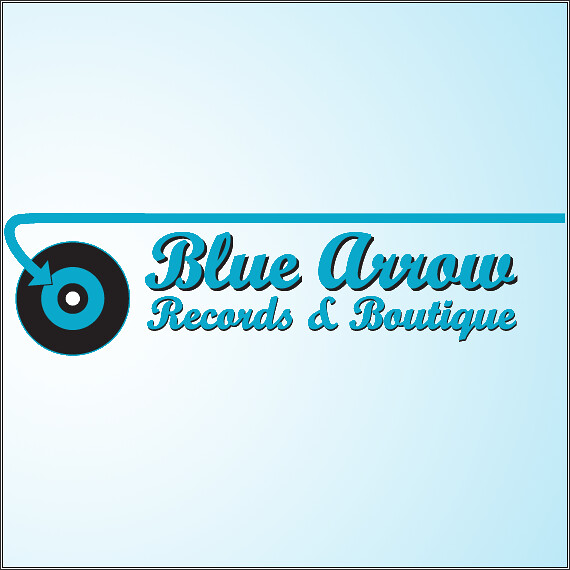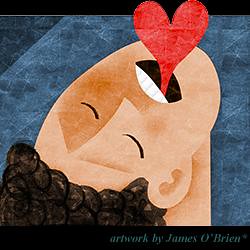 We all remember fondly the Modern lovers #2 which recorded the Beserkley albums with Jonathan. It was the perfect band which created the pristine classic "Rock'n roll with the Modern Lovers" LP. Following previous interviews with other members of that mythical line-up, Greg "Curly" Keranen and Asa Brebner (click on the names to reach the interviews), this time I was happy to interact with Leroy Radcliffe who kindly agreed to share with us his memories of that time. At the beginning of the long version of "Dodge Veg-o-matic" one musician is making fun of Jonathan's old car, that was Leroy indeed.
We all remember fondly the Modern lovers #2 which recorded the Beserkley albums with Jonathan. It was the perfect band which created the pristine classic "Rock'n roll with the Modern Lovers" LP. Following previous interviews with other members of that mythical line-up, Greg "Curly" Keranen and Asa Brebner (click on the names to reach the interviews), this time I was happy to interact with Leroy Radcliffe who kindly agreed to share with us his memories of that time. At the beginning of the long version of "Dodge Veg-o-matic" one musician is making fun of Jonathan's old car, that was Leroy indeed.Leroy has moved to California nowadays and is active in producing and composing music for films and artistic events.
He is also a scientist keen on Astrophysics.
What is your musical background?
The year was 1957. I was 7 years old and living in the Polish section of Philadelphia known as Port Richmond.
My mother came from a Polish family. We were quite poor, although this was not apparent to me at that time. I was the only child, searching for fantasies and escapes from moment to moment. One day, during "Polka hour", when my mother was across the yard, visiting my grandmother, I discovered that I could switch stations on the kitchen radio and switch it back without getting caught. Off went the polkas and on came Duane Eddy and the Rebel Rousers. it was true love. In particular it was the sound of his guitar for me.
I began taking lessons.
I immediately became addicted to the smell of the instruments - the wood, the cat-gut strings, the plastic picks - as I would climb to the second level, above the music shop where the instructors taught.
I was able to burn through each lesson with ease. I was a natural musician. it was like breathing air. perhaps it was in my blood. my father had some experience with a banjo mandolin, my mother with an accordion.
The lessons eventually became private lessons at the house at great expense. Simultaneously, I had an interest in science. I joined The Franklin Institute at age 8 (the youngest member) and studied things like Tesla Coils and witnessed the first demonstration of a hover-craft in 1958.
However, music seemed more freeing and creative. It won out over science, although to me, the two remain intrinsic to each other to this day.
As a teenager, I liked the Beach Boys, the Animals, Them, Beatles, etc. but not Doo Wop so much though vocal groups were literally singing on the corner of my street.
I went to The Granoff Conservatory of Music in downtown Philly for classical ear training and piano. I met a few local musicians there and ended up frequenting the bohemian coffee houses nearby, on a regular basis. then came The Velvet Underground days with Mo Tucker's hypnotic drums, John Cale's violin and Nico's enchanting voice. I was forever changed.
This was all in Philly.
 | |||
| Electric Factory Poster, featuring Woodys Truckstop |
Were you involved in music before the Modern Lovers?
When Todd Rundgren left Woodys Truckstop to form The Nazz, I was invited to replace him. this eventually led to my first record deal with Mercury Records.we opened for acts like Jimi Henfrix, The Doors, Cream, Van Morrison and The Beatles. I was 17 years old.
Woodys Truckstop disbanded after an unsuccessful album tour and numerous personnel changes. i eventually moved to Cambridge Mass and became employed at AT&T (Bell Labs), commuting everyday via bicycle and subway to the lovely and mysterious downtown Boston. i exercised my left-brain, taking an opportunity in the "lull" to study Physics and Astronomy at Harvard University.
How did you become a Modern Love?
One day, I heard a song on the radio that reminded me of the early Velvet Underground. it was Roadrunner, by The Modern Lovers. I was struck by the drone and the energy of the ending. it was like nothing else on the radio. it was pure.
At this time, above my apartment, lived John Brody, a disk-jockey at WBCN. he was aware of my musical past and that I was longing to get back into it, despite the good paying job. he told me that the ML were looking for a guitar player, so he set up a meeting between me and the leader, a man named Jonathan Richman.
It was late-winter in New England, and still well below freezing. the time of the meeting was at hand. the doorbell rang. I ran down the steps and opened the door to find a shirt-less, sweating and odoriferous man in boxer shorts and sneakers, asking me if I were Leroy Radcliffe. well, the rest can be termed historical . . .
I had never seen him or the original band on stage prior to that meeting. hearing Roadrunner on the radio was the extent of my ML experience.
Now - for hours - we were face-to-face, acoustic guitars in-hand, in-the-moment, creating, exploring, sweating, laughing, crying, sweating some more. it was heavy.
Jonathan was in the middle of reforming the band. it was me, Jonathan, Curly and a tentative David Robinson. David would be the first to opt-out of the push-ups and D.Sharpe (RIP) the drummer who would replaced him. Somehow, I had not picked-up on the "scene" in Boston. I had performed at Jack's in Cambridge a few times with another fractured R&B form of Woodys Truckstop, but now, I was thrust into a vibrant, incestuous musical scene that for me anyway, had been truly underground.
At this time, above my apartment, lived John Brody, a disk-jockey at WBCN. he was aware of my musical past and that I was longing to get back into it, despite the good paying job. he told me that the ML were looking for a guitar player, so he set up a meeting between me and the leader, a man named Jonathan Richman.
It was late-winter in New England, and still well below freezing. the time of the meeting was at hand. the doorbell rang. I ran down the steps and opened the door to find a shirt-less, sweating and odoriferous man in boxer shorts and sneakers, asking me if I were Leroy Radcliffe. well, the rest can be termed historical . . .
I had never seen him or the original band on stage prior to that meeting. hearing Roadrunner on the radio was the extent of my ML experience.
Now - for hours - we were face-to-face, acoustic guitars in-hand, in-the-moment, creating, exploring, sweating, laughing, crying, sweating some more. it was heavy.
Jonathan was in the middle of reforming the band. it was me, Jonathan, Curly and a tentative David Robinson. David would be the first to opt-out of the push-ups and D.Sharpe (RIP) the drummer who would replaced him. Somehow, I had not picked-up on the "scene" in Boston. I had performed at Jack's in Cambridge a few times with another fractured R&B form of Woodys Truckstop, but now, I was thrust into a vibrant, incestuous musical scene that for me anyway, had been truly underground.
“Rock’n roll with the Modern Lovers” is my piece of choice in Jonathan's discography, could you elaborate a bit on the recording sessions of that album?
The studio was a multi-track: glass windowed control room overlooking a room with a piano. it was perfectly "dry" so that the engineer and producer could "control" all aspects of the sound - typical for the Industry in general right ? yep.
 But it was so dry in fact, that the sound of a clapping hand was absorbed (almost) before your hands came together !
But it was so dry in fact, that the sound of a clapping hand was absorbed (almost) before your hands came together ! Jonathan was glum to say the least. we could tell by the look on Mathew "King" Kauffmans' face that this would be a difficult time.
Glen Kolotkin deserves credit here. he rolled with the punches like the professional that he was . . having engineered the finicky Rolling Stones in their very early days, he was prepared for the worst
We moved all the equipment into the Men's room where the sound had more life, but that wasn't the end of the story. no way. it wasn't perfect.
with a remote cabling system running out the doors, down the halls, around the corners and into the control room, hooked up and working with the bugs worked out, we recorded a few sample tracks all of which got the "ho hum" from JR.
So . . . to the girls' room we went !
We reconfigured all the instruments, remote cabling system et all, recorded a few takes and - ooops - not so good - back to the mens' room with different placements. What was the decisive factor ?
It was undoubtedly the male urinals that had an impact on . . . "that certain sound" - and - it was absolutely true !
The preparation for touring (which would require overcoming sometimes angry fans wanting that electric drone of the old repertoire) included the most unusual but ingenious methods for solidifying and prepping the group for any circumstance. this went beyond mere push-ups, and physical well being. . .
 |
| Jonathan, left and Leroy right |
Performing outdoors, at the edge of The Charles River, in the middle of nowhere, all acoustic, poor Curly with his upright base - "surprising" absolute strangers, romantic couples, MIT students studying . . . . THE SWEEPING WIND, NEW ENGLAND, LONELY FINANCIAL ZONE
performing at the Children's Hospital (Hospice Center) at the noon hour, the nurses wheeling out the Chemo kids into the garden area, remaining in their beds . .
HERE COME THE MARTIAN MARTIANS / THERE'S AN ABOMINABLE SNOWMAN / HEY THERE LITTLE INSECT, etc
rehearsing at the local Old Peoples Home, learning and playing songs from the 1920's and IMPORTANT IN YOUR LIFE, SPRINGTIME, AMAZING GRACE







